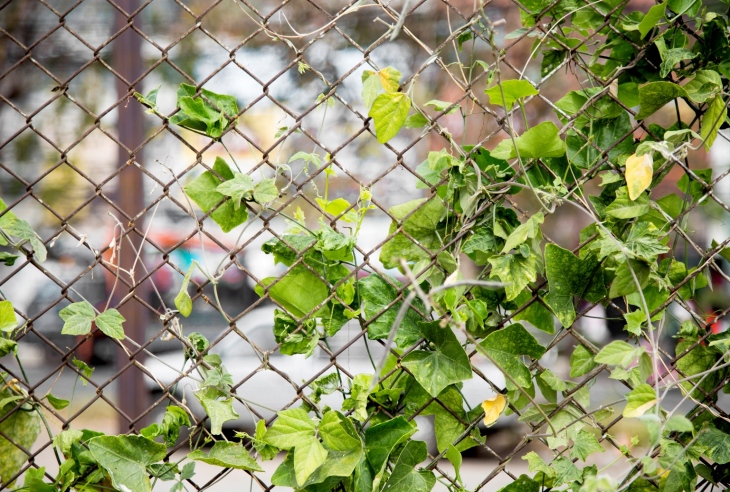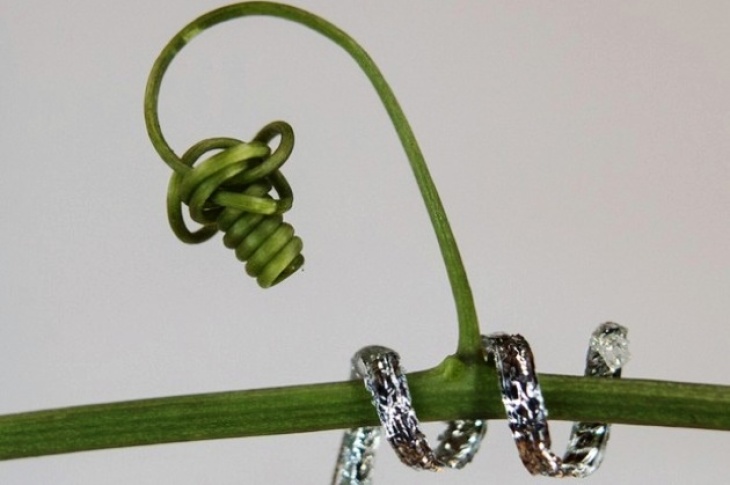Climbing like the Clematis: “GrowBot” to imitate the creeping and winding abilities of climbing plants
Scientists from the Institute of Biomaterial Science at the Helmholtz-Zentrum Geesthacht (HZG) develop artificial muscles for new robot project.

Is it possible to build robots that climb and move like ivy? [Photo: iStock/Yanuki]
Which factors allow ivy or Clematis to climb? What is their energy consumption? Is it possible to build robots that behave in the same way? These are questions that the scientists involved in the GrowBot project want to answer. The ambitious collaborative project, coordinated by the Italian Institute of Technology (IIT) and funded by the European Commission (EC) with around seven million euros for the next four years, forms part of the European Horizon 2020 programme “Future and Emerging Technologies”.
GrowBot’s main goal is the development of robots that, like plants, climb and adapt to their environment. In future, these plant-like robots could be integrated into innovative concepts for urban development. The Teltow subproject, led by Professor Andreas Lendlein, head of the Institute of Biomaterial Science of, Helmholtz-Zentrum Geesthacht, will therefore focus on the development of artificial muscles.
The institute has a great deal of expertise in this area through its research into materials that can move back and forth autonomously. Like plants, these so-called actuators could be activated by temperature, light or humidity. Further development of these materials and their manufacture within the plant-robot is being funded with around €700,000.
A pan-European consortium
![The GrowBot consortium members at the Kick-Off meeting in Pisa. [Photo: © GrowBot/IIT-Istituto Italiano di Tecnologia] The "GrowBot" consortium met for their kick-off meeting in Pisa.](/imperia/md/images/hzg/presse/pressemitteilungen/2019/fittosize__730_0_594c86004ec8caf0e948f90943e596a1_gruppenbild___growbot_-konsortium.jpg)
The GrowBot consortium members at the Kick-Off meeting in Pisa. [Photo: © GrowBot/IIT-Istituto Italiano di Tecnologia]
The GrowBot project is coordinated by Dr Barbara Mazzolai, research director at the Centre for Micro-BioRobotics at IIT in Pontedera (Pisa, Italy). In 2012, the robotics expert coordinated an EU project that produced the world’s first plant-robot. The Plantoid reproduced the behaviour of roots. This new project, GrowBot, focusses on the ability of climbing plants to scale a variety of surfaces using different anchoring strategies and to grow, live and move on these surfaces.
The researchers want to design new climbing robots, which could, for instance, be used in future architecture and urban design such as integrating guiding sensors or exploring archaeological sites.

The Plantoid: the world's first plant-robot (Photo: © IIT-Istituto Italiano di Tecnologia)
“With this project, we will obtain insights into soft materials for robotics that will enable us to find sustainable solutions in an increasingly engineered and digitised world,” said Andreas Lendlein, head of the HZG subproject.
The GrowBot project has a multidisciplinary approach and involves scientists from various disciplines: robotics, botany, mathematics, material science and computer science. The members of the project consortium are:
- Institute of Biomaterial Science at Helmholtz-Zentrum Geesthacht in Teltow, Germany
- Italian Institute of Technology (IIT)in Pontedera, Italy
- University of Freiburg, Germany
- Scuola Superiore Sant’Anna in Pontedera, Italy
- Gran Sasso Science Institute in L’Aquila, Italy
- Linari Engineering S.r.l in Pisa, Italy
- Tel Aviv University, Israel
- French National Centre for Scientific Research in Montpellier, France
- Arkyne Technologies SL in Barcelona, Spain
Media contact:
Communication of science and institutional research projects
Phone: +39 010 71781 965
E-mail contactISTITUTO ITALIANO DI TECNOLOGIA
Research Organization Directorate
Helmholtz-Zentrum Geesthacht
Institute of Biomaterial Science
